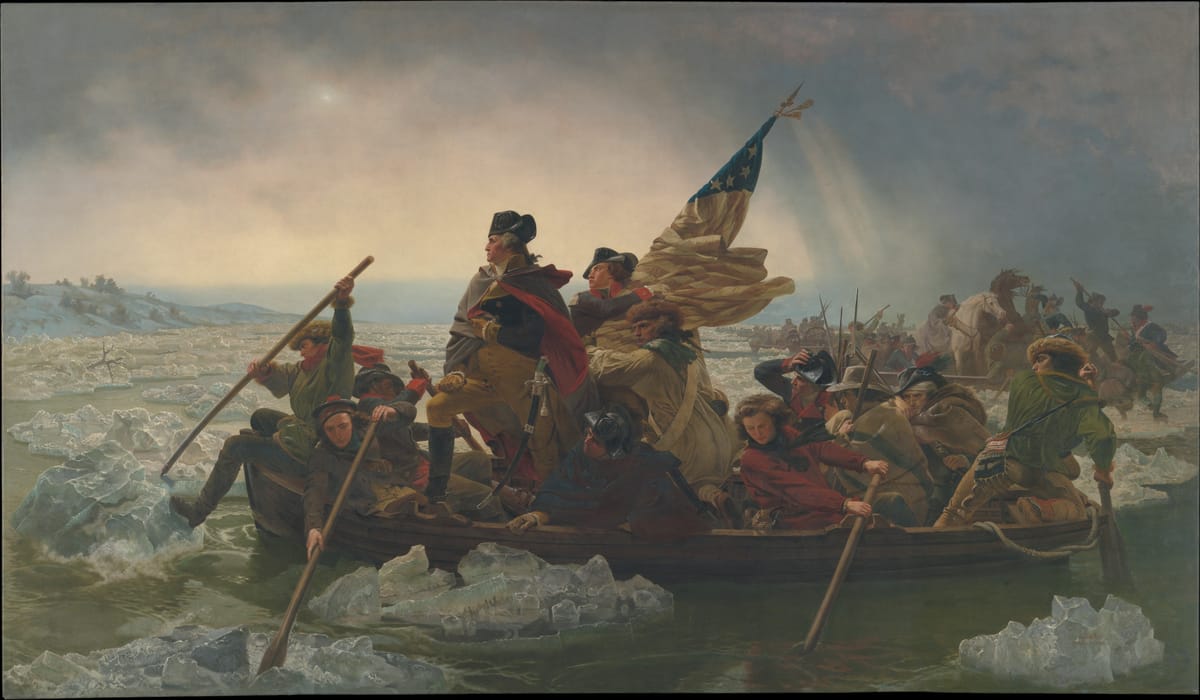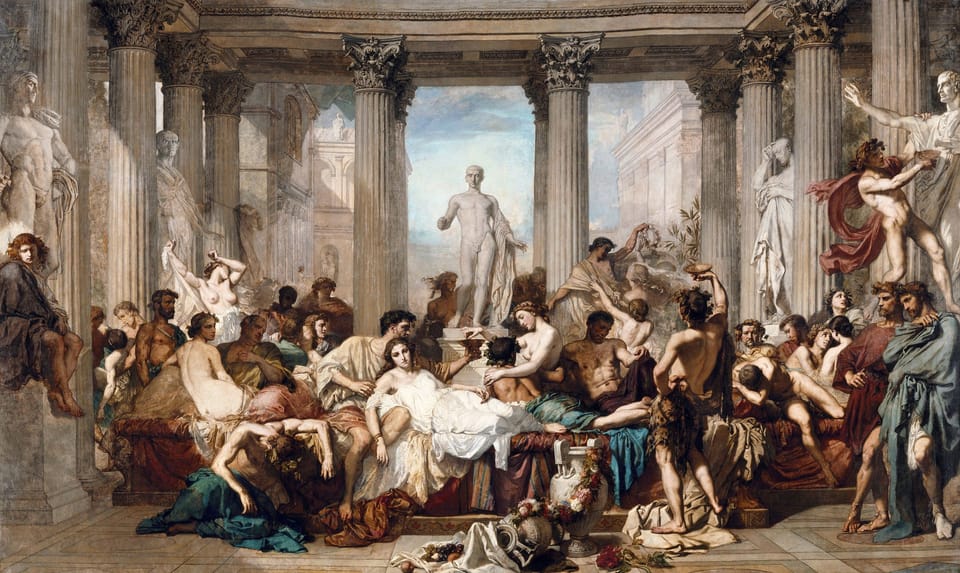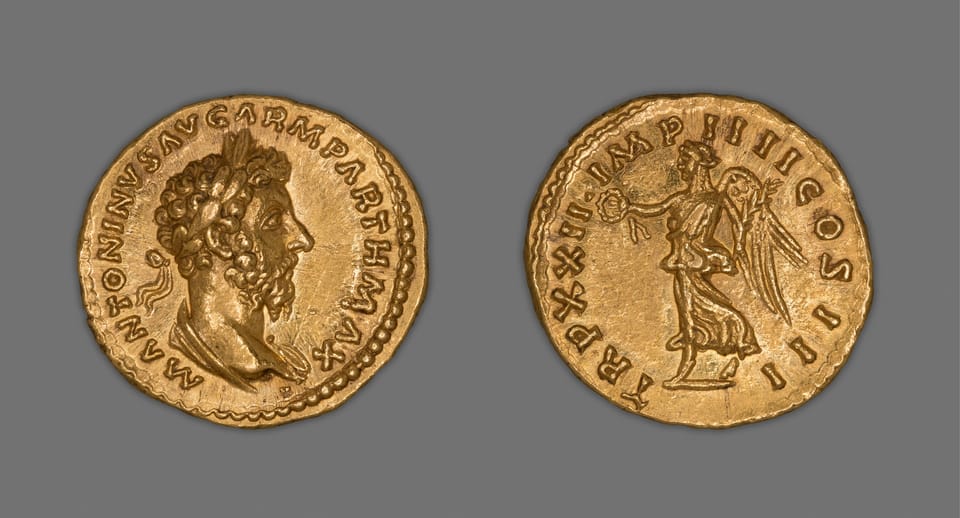America Was Great When She Was Good
America must balance protecting her interests while maintaining the moral principles that made her great, or risk losing both her greatness and the world order she created.

A year ago, I made the case that the 21st century would become another American century. America’s rise to dominance in the 20th century was not solely due to her firepower. Rather, it was the result of this young nation's unique character. When the United States entered World War I in 1917, it broke the Old World's imperial stalemate and made the world "safe for democracy." A generation later, during World War II, American factories became the arsenal of democracy, producing the tanks, planes, and ships that were essential to victory over Nazi Germany. Half a century later, the United States won the Cold War without firing a shot. It triumphed through economic strength, technological innovation, and the magnetic appeal of freedom over tyranny.
The U.S. Navy secured the world's oceans, and, under U.S. policy, trade barriers were dismantled. This ushered in an unprecedented era of globalization. Democracy and free markets appeared to be sweeping the globe, and the "end of history" seemed near. American values seemed destined to become universal, and the American model of governance appeared to offer a template for worldwide prosperity and freedom. This culminated in the Pax Americana of the 1990s.
Yet, within this triumph lay the seeds of crisis. Globalization enriched the world, but left the United States with a massive, unsustainable trade deficit. The engine of global growth became a debtor nation. European allies, who owed much of their postwar prosperity to American security guarantees and access to American markets, became too comfortable with their dependence. Rather than investing in their own defense capabilities, they used their peace dividends to fund extensive social welfare systems, assuming that American military might would forever protect them from external threats. The Russian invasion of Ukraine exposed the folly of this bet, revealing a Europe that is both militarily unprepared and strategically vulnerable.
In this context, it's not surprising that President Trump's rhetoric resonates. He correctly identified that the postwar international order, designed for a different era, often works against American interests today. While the United States maintained global stability, it bore disproportionate costs and watched its industrial base hollow out and its working class struggle. However, Trump's proposed solutions—protectionism, isolationism, and transactional diplomacy—raise profound questions about America's future. Would Americans truly prefer a return to manufacturing jobs? Could the United States withdraw from its global leadership role without creating a power vacuum that hostile nations would quickly fill? What would become of the American Dream if it turned inward and abandoned the universal aspirations that have long defined it?
The fierce debate over immigration in a nation founded by immigrants and their descendants highlights these contradictions particularly well. Left governments have become too permissive in their approach to immigration. The incompatibility of generous social welfare systems and open borders has become painfully apparent in Europe. Meanwhile, America must confront an uncomfortable truth: entire sectors of the economy, including agriculture, construction, and hospitality, depend on immigrant workers willing to perform jobs that most Americans avoid. Rhetoric about border walls and mass deportations collides with economic necessity.
But what will American identity look like when borders are sealed and allies are abandoned? What does "Jesus died to make men holy; let us die to make men free" mean if America abandons free countries in their struggle for freedom? Alexis de Tocqueville's 1835/36 work, De la démocratie en Amérique, is often paraphrased as "America is great because she is good," meaning American democracy thrived because it was based on moral principles and religious beliefs that turned self-interest toward the greater good. Without this moral foundation, democracy would degenerate into chaos or despotism.
Today, America risks forgetting this wisdom. In its haste to protect narrow interests and material advantages, the nation is in danger of abandoning the very ideals that made it worth protecting. A foreign policy reduced to transactional calculations and a political culture that puts winning above principle are symptoms of a deeper malaise. When greatness is divorced from goodness, it becomes mere dominance, inspiring fear and resentment rather than admiration and emulation.
This synthesis of ideals and actions must be restored. The choice is not between returning to a mythical past of greatness or accepting an inevitable decline. Rather, America must create a new embodiment of its founding principles that aligns with contemporary realities. This new expression should address the legitimate frustrations of those left behind by globalization while preserving the openness that has always invigorated America. America must demand reciprocity from its allies without retreating into isolation. The country must secure its borders while honoring the dignity of those who seek the American Dream.
If America fails in this task and chooses the easier path of narrow nationalism or retreat, the consequences will extend far beyond its borders. If America does not embody its ideals through action, they will become mere folklore. The world will question whether the great experiment in ordered liberty was a historical accident rather than a glimpse of humanity's potential. Ultimately, Tocqueville's insight remains as true today as it was two centuries ago. America will be great only so long as she is good.
Follow me on X for frequent updates (@chaotropy).




